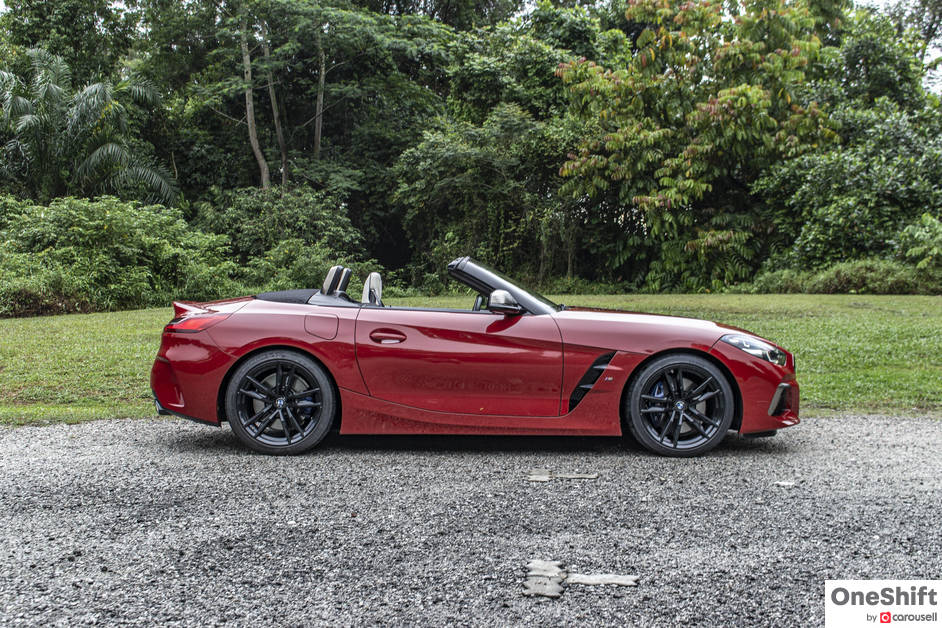Why Big Brake Kits Can Worsen Braking Performance
There is a joy in extracting performance that was otherwise left untapped from the factory. Mass production means compromises have had to be made to ensure cars can turn a profit. What this means though, is that there are areas of the car with room for improvement.

There is a joy in extracting performance that was otherwise left untapped from the factory. Mass production means compromises have had to be made to ensure cars can turn a profit. What this means though, is that there are areas of the car with room for improvement.
Engines may be under-stressed and detuned for reliability, and other mechanical components may only really be built to tolerate operating within a set window. Car makers did not put their models through literal hell for nothing – chances are your ride can go, stop and corner harder if these factory limitations are removed.

But everything has to be done in moderation. It does not hurt to have some sensibilities too. See, automakers ensure that their models are balanced when you stomp on the anchors. There is some serious arithmetic tabulated by the boffins in their respective engineering departments to make sure that is controlled, repeatable and reliable braking when their clients call for it. So, what happens when that balance is thrown out of whack? Can aftermarket brakes sully stopping performance?
If you stick to name brand aftermarket brakes, you will not have much to worry about. It is when you start penny pinching can you run into some serious trouble. Less reputable manufacturers may opt to use lower grade materials and manufacturing methods to create their products. On the surface, they sure look the part, and perhaps may even use the same size and type of pads that a more pedigreed brand would have used.
Suboptimal manufacturing methods may translate into hollow crevices within the caliper casting itself. It may look blemish-free on the surface, especially when it is shiny and new, but the compromised integrity may lead to failures when you need the anchors the most. They may also leak brake fluid, a result of improperly tapped female brake line threads. Both can cause a loss in brake pressure, with the latter potentially also causing paintwork issues as brake fluid is corrosive!
You would only feel the effects of larger brakes if they clamp harder and more efficiently on the rotors. Your OEM setup is adequate for your stock brakes. However, aftermarket brakes often require more volume to push the larger pistons into the pads that will then grip onto the rotors.
You will have to not skip leg day if you would like the effects of a shorter stopping distance on larger aftermarket brakes. The master cylinder and brake booster may not generate sufficient pressure to efficiently slow you down on the same effort – you may have to exert a bit more force to feel the effects of your investment. Again, you are subjecting stock bits to operate outside of parameters deemed “safe” by the manufacturer, so expect increased failure rates and wear-and-tear.
The marketing divisions of aftermarket brake manufacturers would often have you believe that only your front brakes are due an upgrade. From the factory, the goal is to try and best match axle speed on braking for the most rapid deceleration.
When you swap bigger front brakes on your vehicle, you increase the stopping power on the front end, allowing it to drastically slow down more than the rear. What this translates into, is a vehicle that is unstable on hard braking, which can end up having the opposite effect of what you were trying to chase with larger brakes in the first place.
Believe it or not, the most bang-for-buck upgrade for shorter stopping distances can be your tyres. Higher quality rubber offers superior traction and grip, and that can benefit you when you need to stop on a dime too.
Experts also recommend keeping your stock calipers and rotors, but switching to a more aggressive (read: grippy) compound of brake pads. You will not be overloading your braking system, as you are applying the same pressure for stopping. Additional friction is being generated, and that is really about it. However, the increased wear rate can result in brake dust build up.
One other thing you can consider, if you plan on tracking your daily, is upgrading your brake fluid to one that can better resist boiling. Heat is the greatest enemy of stopping! The less of it you have in your system, the faster your car can come to a standstill.
Big Brake Kit or not, you can find a wide array of used cars, tastefully modified to suit a wide client base, on the Cars For Sale section on the Carousell App! With thousands of listing already live, and with more being added daily, there’s bound to be something for everyone!
Credits: Jek Ray Low

- Convenient and Hassle-Free
- Consumer Protection
Transparent Process
With No Obligation


Get the Best Price for your used car
from 500+ dealers in 24 hours








